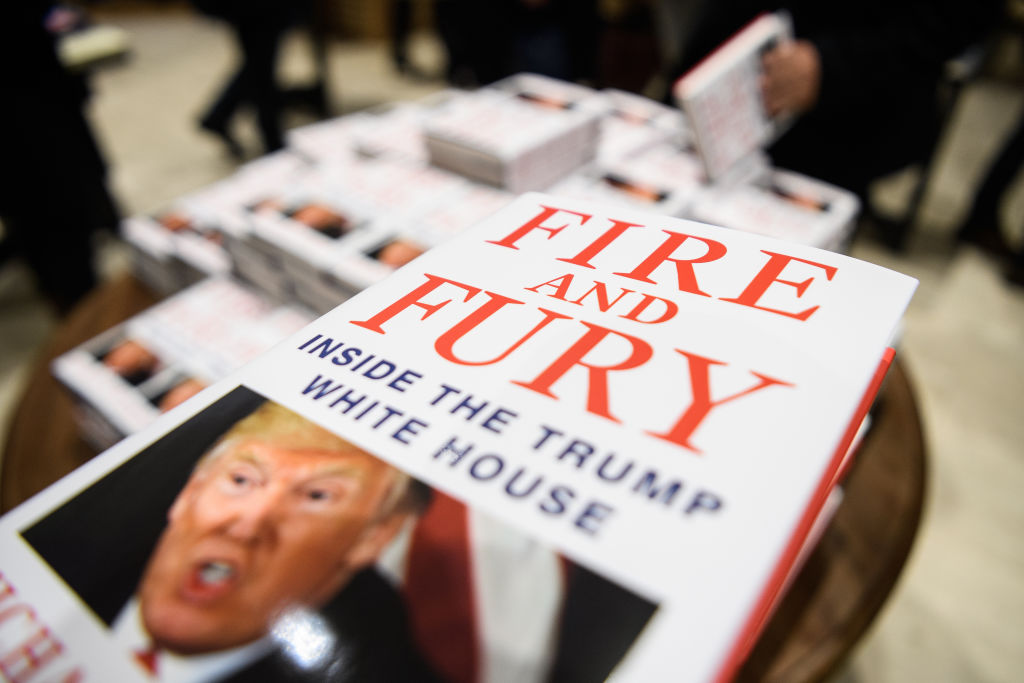Trump, reportedly furious over questions about his mental health, didn't accept Bannon's apology


A free daily email with the biggest news stories of the day – and the best features from TheWeek.com
You are now subscribed
Your newsletter sign-up was successful
President Trump may be publicly insisting that he is "really smart" if not a "genius," after the Michael Wolff book Fire and Fury thrust long-simmering questions about his mental acuity to the front of the public conversation in Washington, but he "privately resents the now-regular chatter on cable television news shows about his mental health and views the issue as 'an invented fact' and 'a joke,' much like the Russia probe," The Washington Post reports, citing "one person who recently discussed it with him." The book has "roiled the president more than anyone expected," Axios adds.
In particular, Trump has spent the week "publicly and privately raging about his former chief strategist" and "onetime brother-in-arms" Stephen Bannon, a primary source for Wolff's book, Politico reports. Bannon, uncharacteristically, tried to de-escalate his ill-timed feud with Trump, issuing a public partial apology Sunday for his comments about Trump and his son Donald Trump Jr., but inside the White House the statement was "seen as too little, too late for an operative unaware of the self-inflicted damage his hubris could cause," Politico says, and "it did nothing to quell Trump's rage at his former chief strategist or the anger of Bannon's former West Wing colleagues."
Trump's tweets about his intelligence notwithstanding, the White House strategy for parrying questions about Trump's mental fitness has focused on "umbrage and indignation," attacking anybody who raises the question, the Post says. "The White House perspective is outrage and disgust that people who do not know this president or understand the true depth of his intellectual capabilities would be so filled with hate they would resort to something so far outside the realm of reality or decency," Press Secretary Sarah Huckabee Sanders emailed the Post. When reporters asked if Trump's physical on Friday will include psychiatric tests, Deputy Press Secretary Hogan Gidley said simply, "No."
The Week
Escape your echo chamber. Get the facts behind the news, plus analysis from multiple perspectives.

Sign up for The Week's Free Newsletters
From our morning news briefing to a weekly Good News Newsletter, get the best of The Week delivered directly to your inbox.
From our morning news briefing to a weekly Good News Newsletter, get the best of The Week delivered directly to your inbox.
A free daily email with the biggest news stories of the day – and the best features from TheWeek.com
Peter has worked as a news and culture writer and editor at The Week since the site's launch in 2008. He covers politics, world affairs, religion and cultural currents. His journalism career began as a copy editor at a financial newswire and has included editorial positions at The New York Times Magazine, Facts on File, and Oregon State University.
-
 Corruption: The spy sheikh and the president
Corruption: The spy sheikh and the presidentFeature Trump is at the center of another scandal
-
 Putin’s shadow war
Putin’s shadow warFeature The Kremlin is waging a campaign of sabotage and subversion against Ukraine’s allies in the West
-
 Media: Why did Bezos gut ‘The Washington Post’?
Media: Why did Bezos gut ‘The Washington Post’?Feature Possibilities include to curry favor with Trump or to try to end financial losses
-
 Trump HHS slashes advised child vaccinations
Trump HHS slashes advised child vaccinationsSpeed Read In a widely condemned move, the CDC will now recommend that children get vaccinated against 11 communicable diseases, not 17
-
 FDA OKs generic abortion pill, riling the right
FDA OKs generic abortion pill, riling the rightSpeed Read The drug in question is a generic version of mifepristone, used to carry out two-thirds of US abortions
-
 RFK Jr. vaccine panel advises restricting MMRV shot
RFK Jr. vaccine panel advises restricting MMRV shotSpeed Read The committee voted to restrict access to a childhood vaccine against chickenpox
-
 Texas declares end to measles outbreak
Texas declares end to measles outbreakSpeed Read The vaccine-preventable disease is still spreading in neighboring states, Mexico and Canada
-
 RFK Jr. shuts down mRNA vaccine funding at agency
RFK Jr. shuts down mRNA vaccine funding at agencySpeed Read The decision canceled or modified 22 projects, primarily for work on vaccines and therapeutics for respiratory viruses
-
 Measles cases surge to 33-year high
Measles cases surge to 33-year highSpeed Read The infection was declared eliminated from the US in 2000 but has seen a resurgence amid vaccine hesitancy
-
 Kennedy's vaccine panel signals skepticism, change
Kennedy's vaccine panel signals skepticism, changeSpeed Read RFK Jr.'s new vaccine advisory board intends to make changes to the decades-old US immunization system
-
 Kennedy ousts entire CDC vaccine advisory panel
Kennedy ousts entire CDC vaccine advisory panelspeed read Health Secretary RFK Jr. is a longtime anti-vaccine activist who has criticized the panel of experts
